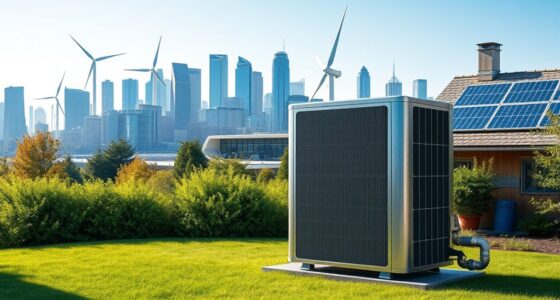Do you want to learn about the six main features that set residential HVAC heat pumps apart from others?
Well, hold on tight because we’re about to unveil the secrets that will revolutionize your home’s heating and cooling system.
From energy efficiency and dual fuel capability to variable speed compressors and smart thermostat integration, these cutting-edge technologies are here to make your life more comfortable and convenient.
Get ready to experience a whole new level of comfort and efficiency with these game-changing features.
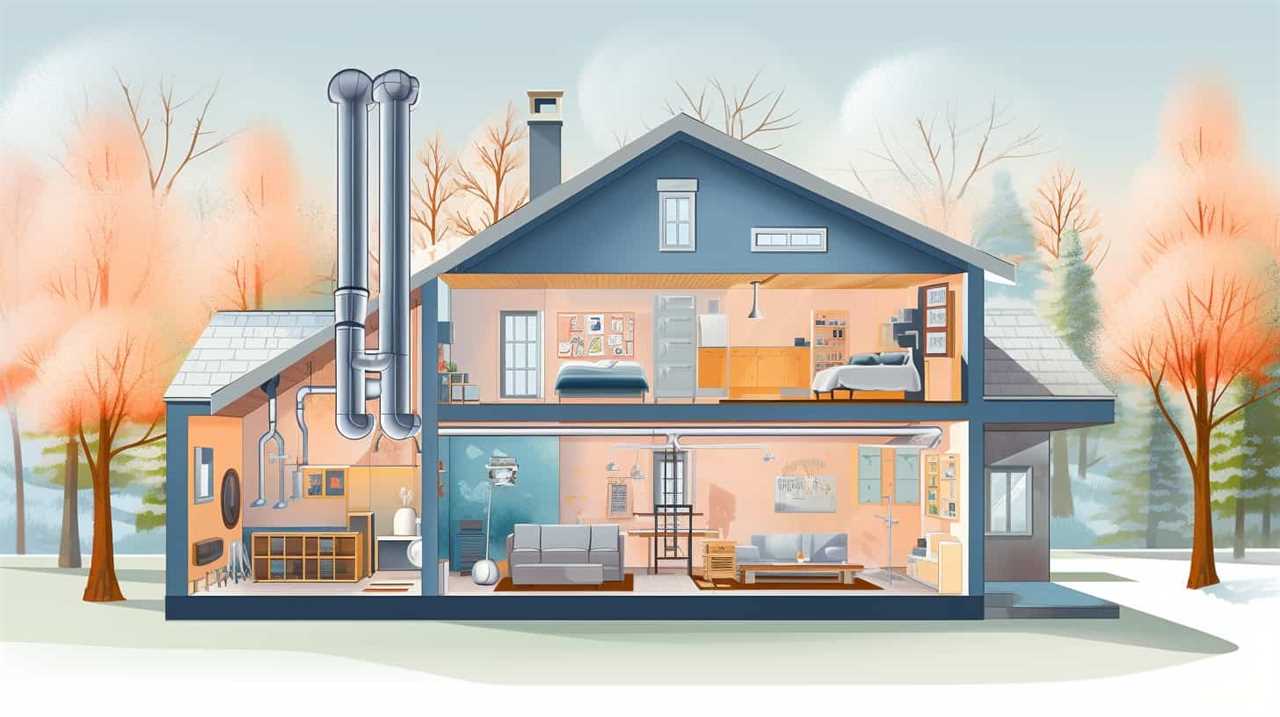
Key Takeaways
- Energy efficiency is a top priority in residential HVAC heat pumps, and can be achieved through proper insulation, regular maintenance, and choosing a heat pump with a high SEER rating.
- Dual fuel capability allows heat pumps to switch between electricity and gas, improving heating efficiency and reducing costs.
- The variable speed compressor provides greater control over cooling and heating output, leading to more precise temperature control and improved energy efficiency.
- Integration with smart thermostats optimizes energy usage, reduces costs, and allows for convenient and flexible temperature control.
Energy Efficiency
We always prioritize energy efficiency when considering residential HVAC heat pumps. Energy efficiency is a crucial aspect of these systems as it not only helps homeowners save on energy costs but also reduces the environmental impact.
To maximize energy efficiency, there are several energy-saving tips that can be implemented.
Firstly, proper insulation and sealing of the home can prevent energy leakage, ensuring that the heat pump operates optimally.
Additionally, regular maintenance and cleaning of the heat pump’s components, such as filters and coils, can improve its efficiency and prolong its lifespan.
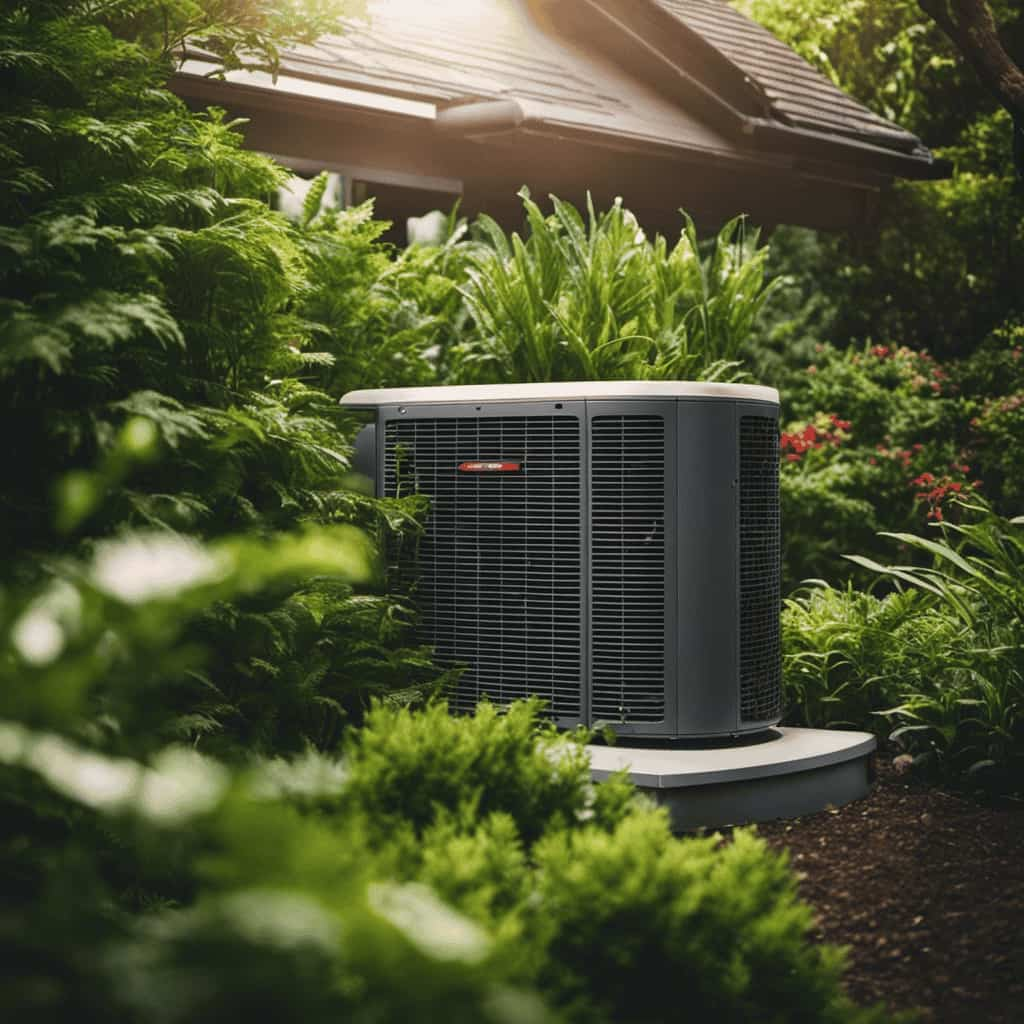
It’s also recommended to program the heat pump to adjust the temperature according to occupancy patterns, avoiding unnecessary energy consumption.
Choosing a heat pump with a high SEER (Seasonal Energy Efficiency Ratio) rating is another effective way to achieve energy efficiency.
Dual Fuel Capability
One of the most important features to consider when evaluating residential HVAC heat pumps is their dual fuel capability. This feature allows the heat pump to switch between two fuel sources, typically electricity and natural gas, depending on which one is more efficient for heating at a given time.
By utilizing the most efficient fuel source, dual fuel capability can significantly improve the heating efficiency of a heat pump system. This not only leads to cost savings but also reduces the environmental impact of the HVAC system. During colder months, when electricity may be less efficient for heating, the heat pump can automatically switch to natural gas, maximizing energy efficiency and reducing heating costs.
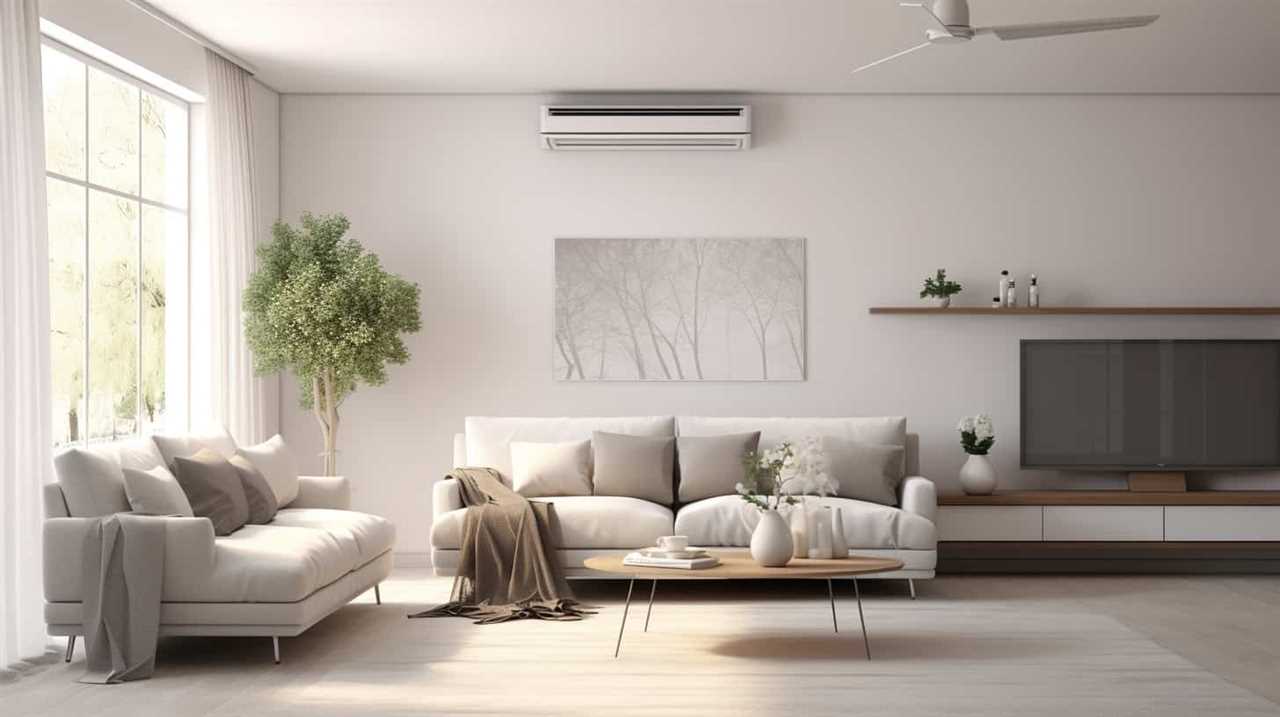
Dual fuel capability is a valuable feature for homeowners looking to optimize their heating system’s efficiency and save on energy expenses.
Variable Speed Compressor
The variable speed compressor is a key component in residential HVAC heat pumps as it allows for greater control over the cooling and heating output of the system. Utilizing inverter technology and variable refrigerant flow, the variable speed compressor adjusts its speed to match the specific heating or cooling demands of a space. This means that the compressor can operate at different speeds, rather than just being either on or off, resulting in more precise temperature control and improved energy efficiency.
To better illustrate the benefits of a variable speed compressor, consider the following table:
| Feature | Benefits |
|---|---|
| Inverter Technology | Smooth and continuous operation |
| Variable Refrigerant Flow | Optimal heating and cooling performance |
| Enhanced Energy Efficiency | Lower utility bills |
By incorporating a variable speed compressor, HVAC systems can deliver optimal comfort while minimizing energy consumption. This makes them an excellent choice for homeowners looking to reduce their carbon footprint and save on their energy costs.
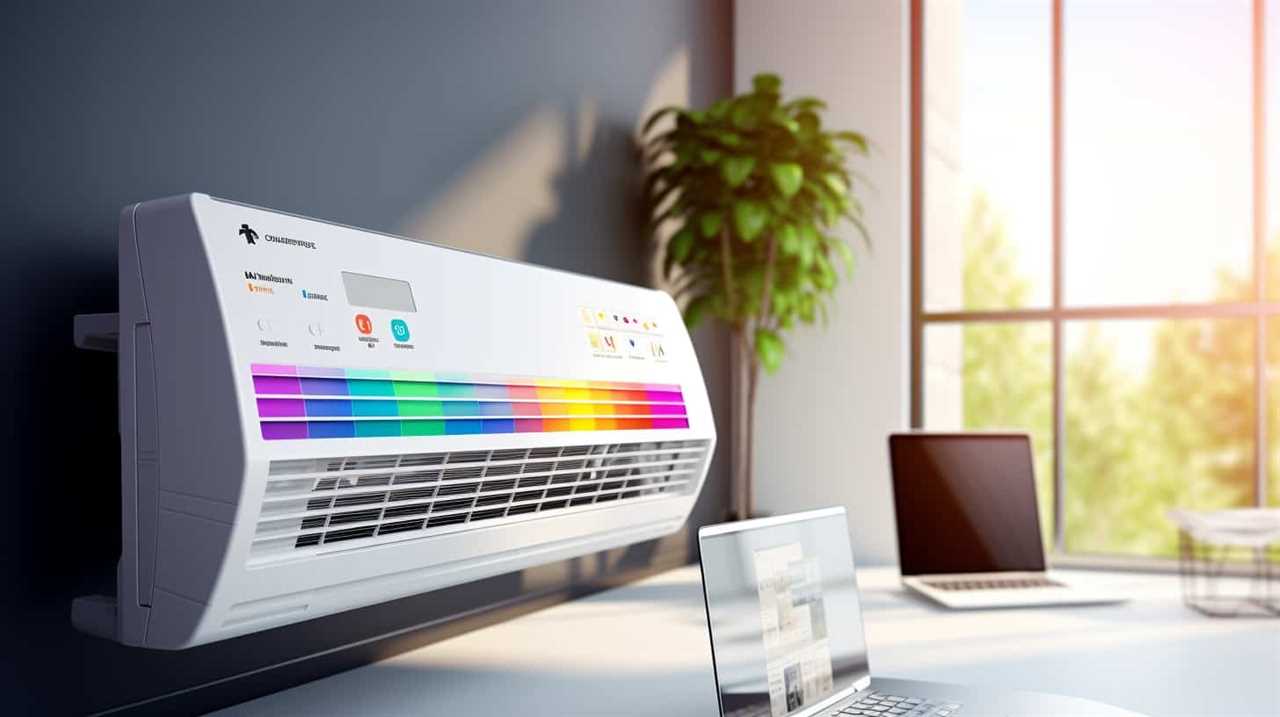
Now, let’s explore the next essential feature of residential HVAC heat pumps: smart thermostat integration.
Smart Thermostat Integration
Smart Thermostat Integration is a crucial feature in residential HVAC heat pumps that allows for energy-saving temperature presets and remote temperature control.
By integrating a smart thermostat with the heat pump, users can set specific temperature settings for different times of the day, optimizing energy usage and reducing costs.
Additionally, the ability to remotely control the thermostat provides convenience and flexibility, allowing users to adjust temperature settings even when they’re away from home.
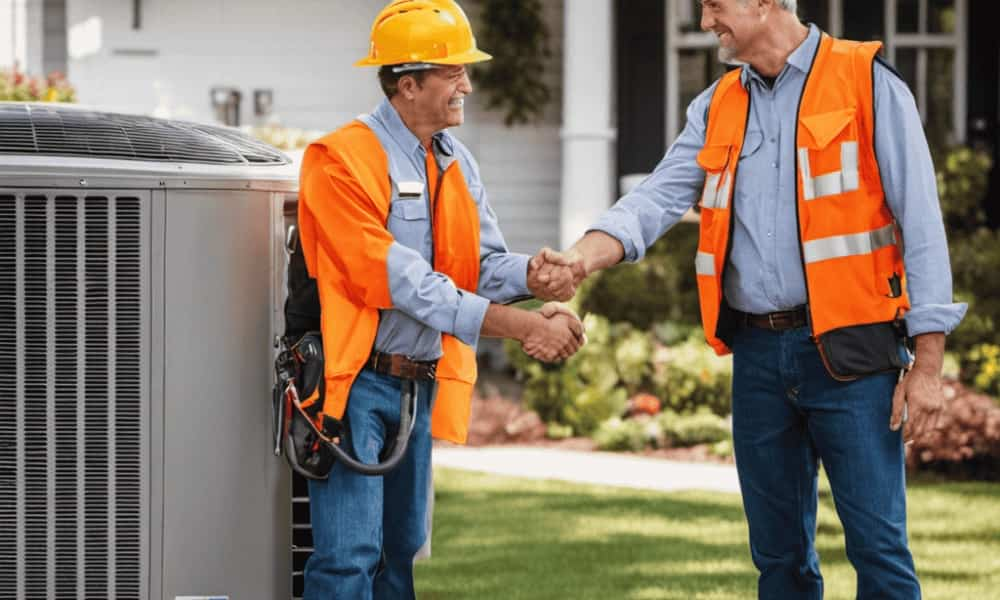
Energy-Saving Temperature Presets
We can save energy by integrating smart thermostats with HVAC heat pumps and setting temperature presets. Smart thermostat integration allows for convenient control and automation of the heating and cooling system in our homes. With programmable settings, we can customize temperature presets based on our daily routines and preferences, optimizing energy efficiency without sacrificing comfort. By utilizing smart home automation, we can schedule temperature adjustments to coincide with our daily activities, such as lowering the temperature when we are away or asleep and raising it before we return or wake up. This not only saves energy but also enhances our overall comfort and convenience. Take a look at the table below to see how temperature presets can make a significant impact on energy consumption.
| Time of Day | Temperature Setting | Energy Consumption |
|---|---|---|
| Morning | 70°F | Low |
| Afternoon | 75°F | Medium |
| Evening | 72°F | Low |
| Night | 65°F | Low |
| Away | 60°F | Minimal |
Remote Temperature Control
With smart thermostat integration, we can control the temperature remotely, optimizing our HVAC heat pump’s performance. This feature allows for wireless connectivity and mobile app integration, providing convenience and flexibility in managing the temperature settings of our HVAC system.
Through the mobile app, we can easily adjust the temperature from anywhere, ensuring a comfortable environment even before we arrive home. This not only enhances our comfort but also saves energy by allowing us to adjust the temperature based on our daily routines or unexpected events.
Moreover, the wireless connectivity enables real-time monitoring and control, allowing us to track energy usage and make adjustments as needed.
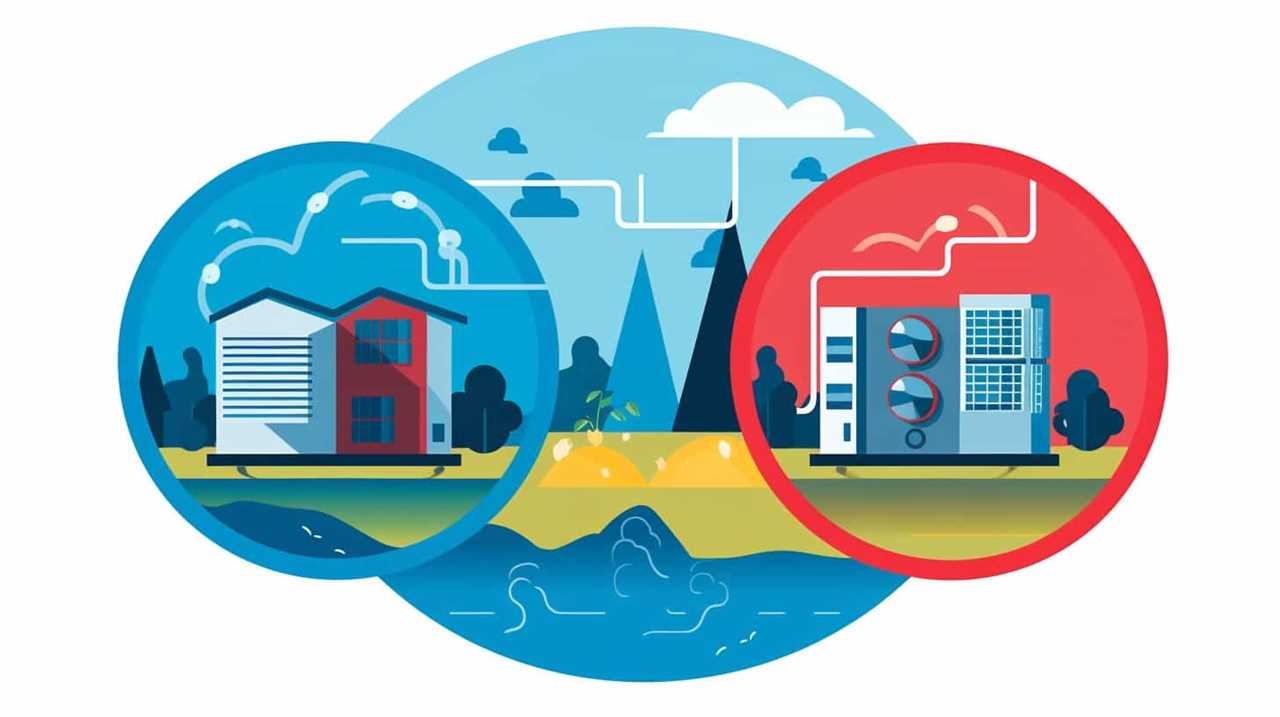
Noise Reduction Technology
Our HVAC heat pumps incorporate noise reduction technology to create a quieter and more comfortable living environment. One of the key components of this technology is heat pump insulation, which helps to reduce the transmission of sound from the unit to the surrounding areas. We also employ soundproofing techniques such as vibration isolation mounts and noise-reducing compressor enclosures. These measures help to minimize the noise generated by the heat pump, ensuring that it operates quietly and efficiently.
Additionally, we use advanced fan blade designs and variable speed motors to further reduce noise levels. By implementing these noise reduction technologies, our heat pumps offer a peaceful and tranquil atmosphere in your home.
Now, let’s move on to discuss the next essential feature of our residential HVAC heat pumps: all-weather durability.
All-Weather Durability
For optimal performance and longevity, our HVAC heat pumps are designed to withstand extreme weather conditions and provide reliable heating and cooling year-round. All-weather durability is a crucial feature of our residential HVAC heat pumps, ensuring that they can operate efficiently and effectively regardless of the external environment.
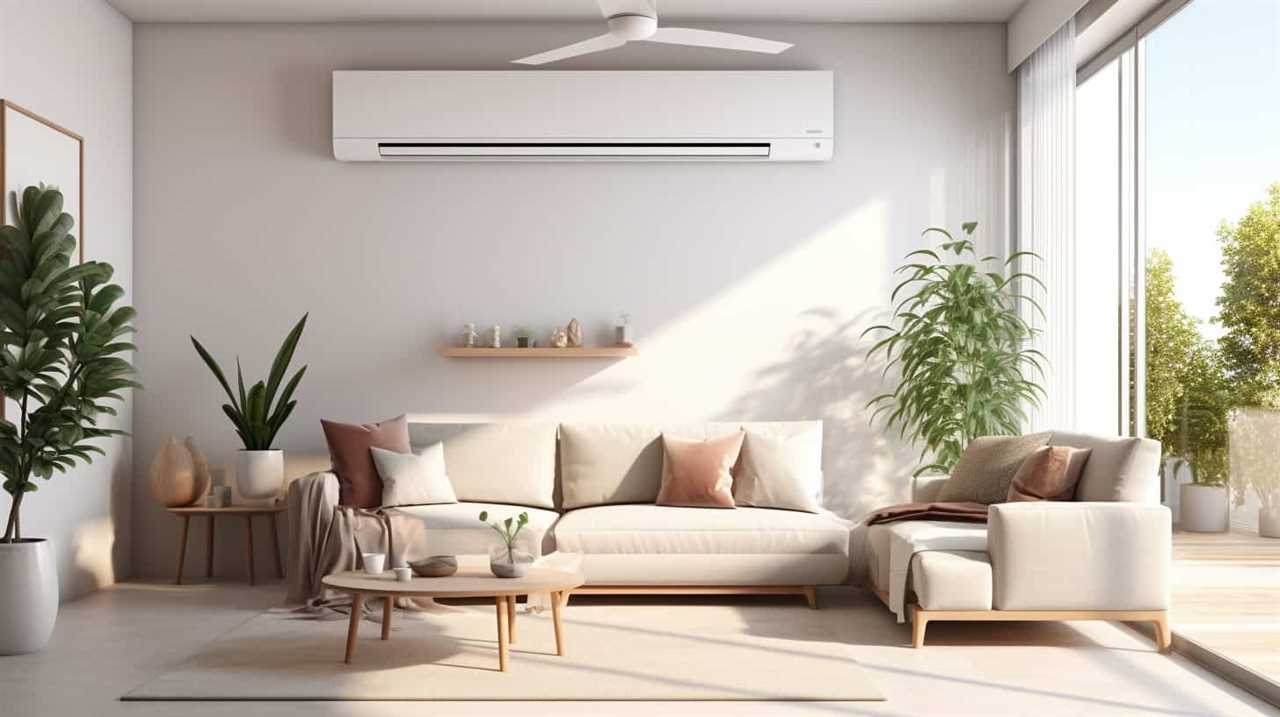
These heat pumps are engineered to withstand extreme temperatures, from freezing cold winters to scorching hot summers. The components of our heat pumps are built with high-quality materials and undergo rigorous testing to ensure their ability to withstand the harshest weather conditions.
This longevity is achieved through advanced insulation, corrosion-resistant coatings, and robust construction. By investing in our HVAC heat pumps, homeowners can have peace of mind knowing that their systems will continue to function optimally, providing reliable heating and cooling for many years to come, regardless of the weather.
Frequently Asked Questions
What Is the Average Lifespan of a Residential HVAC Heat Pump?
The average lifespan of a residential HVAC heat pump is typically around 15 to 20 years. Regular filter replacement is crucial to ensure optimal performance and longevity of the system.
How Often Should the Filters Be Replaced in a Heat Pump System?
We replace the filters in our heat pump system every three months. Signs of a clogged filter include reduced airflow and increased energy consumption. Regular filter replacement ensures optimal performance and efficiency.
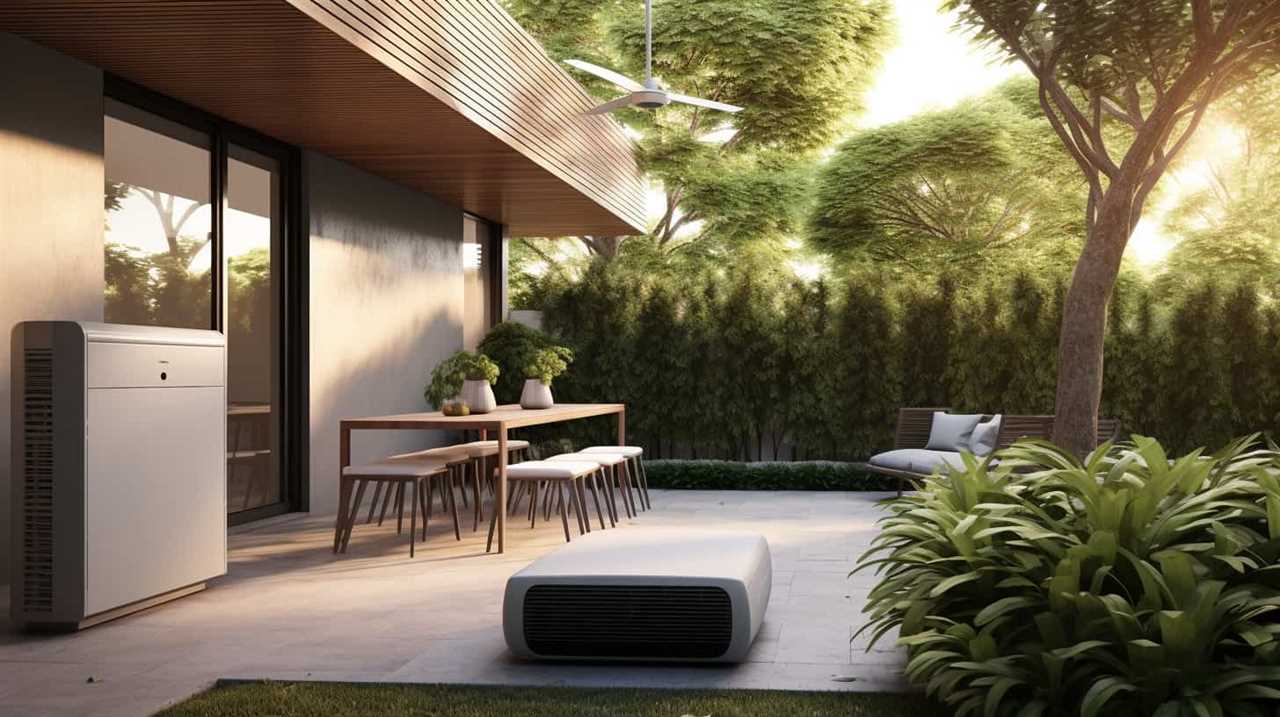
Can a Heat Pump Be Used as the Sole Heating Source in Colder Climates?
Yes, a heat pump can be used as the sole heating source in colder climates. However, it is important to consider the size and efficiency of the heat pump, as well as the insulation of the home.
Are There Any Government Incentives or Tax Credits Available for Installing a Heat Pump?
Yes, there are government incentives and tax credits available for installing a heat pump. These incentives and credits can help offset the cost of installation and make it more affordable for homeowners.
What Maintenance Tasks Should Be Performed Regularly to Ensure Optimal Performance of a Heat Pump?
Regular maintenance tasks are crucial for optimal heat pump performance. We must ensure the filters are clean, check and adjust refrigerant levels, inspect and clean coils, and regularly clean the outdoor unit.
What are the Essential Features of Heat Pump HVAC Systems in Residential Homes?
Heat pump hvac systems offer several essential features for residential homes. These systems provide both heating and cooling capabilities, making them versatile. They are energy-efficient, using electricity to transfer heat rather than generating it, resulting in lower utility bills. Heat pump HVAC systems come with variable-speed compressors, ensuring precise temperature control and better efficiency. Additionally, they can dehumidify the air, improving indoor air quality and comfort.
Conclusion
In conclusion, residential HVAC heat pumps offer a multitude of essential features that enhance comfort and efficiency in homes.
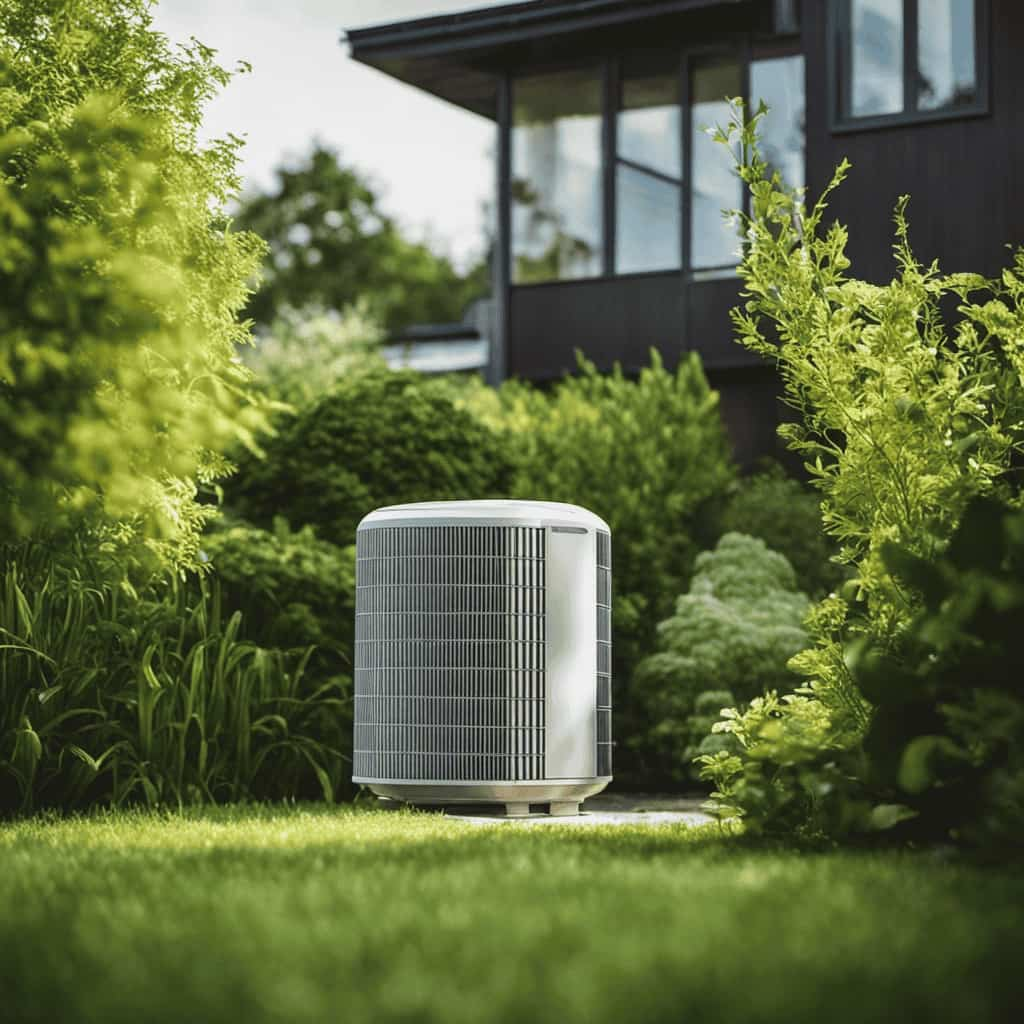
For example, imagine coming home on a scorching summer day to a cool and quiet house, thanks to the noise reduction technology incorporated in the heat pump. This not only provides relief from the heat but also creates a peaceful and relaxing atmosphere, allowing you to fully unwind after a long day.
With such advanced features, heat pumps truly revolutionize residential heating and cooling systems.




